Improving spelling skills Writing Worksheets for Ages 6-9
6 filtered results
-
From - To
Enhance your child's spelling skills with our expertly designed Writing Worksheets for Ages 6-9. At Kids Academy, we understand the importance of building a strong spelling foundation for young learners. These engaging and interactive worksheets combine fun activities with essential spelling concepts, helping your child practice and master word recognition, phonetics, and spelling rules. Each worksheet is tailored to challenge and motivate kids, fostering their confidence and improving their writing abilities. Perfect for classroom or home use, our worksheets make learning to spell an enjoyable journey. Boost your child's literacy today with our comprehensive spelling resources!
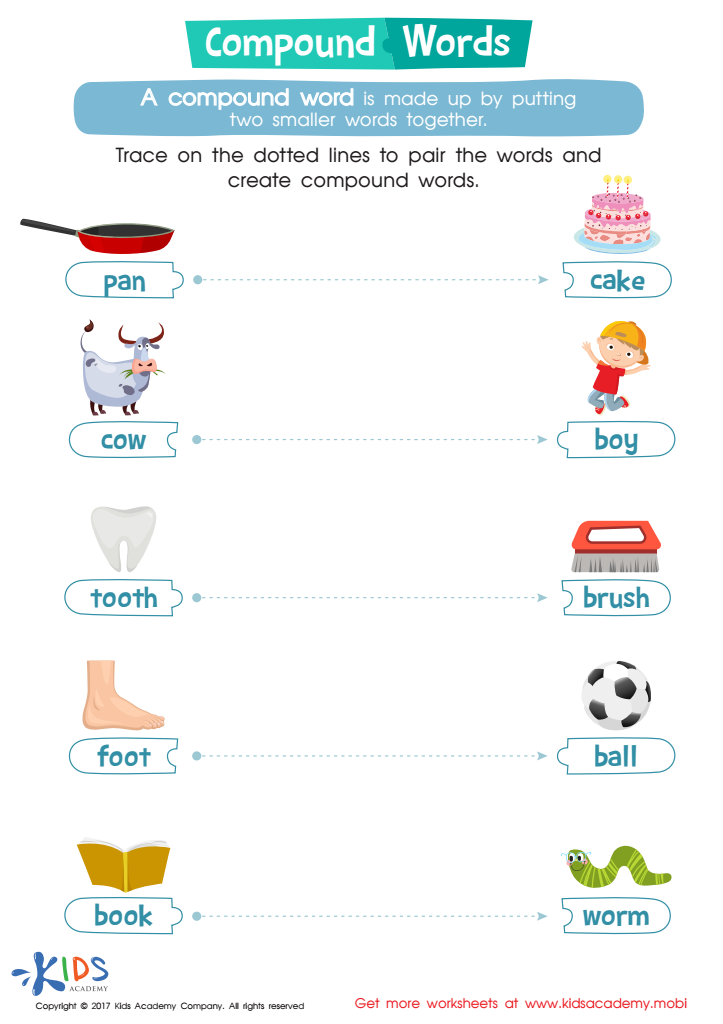

Compound Words Word Structure Worksheet
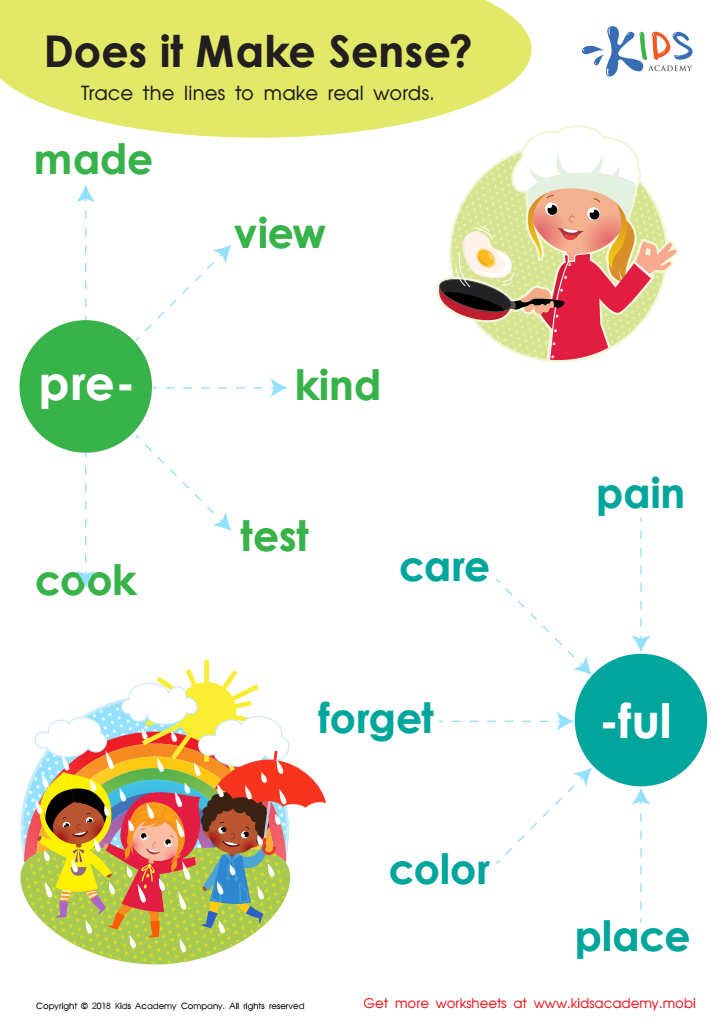

Prefix pre– and Suffix ful– Worksheet
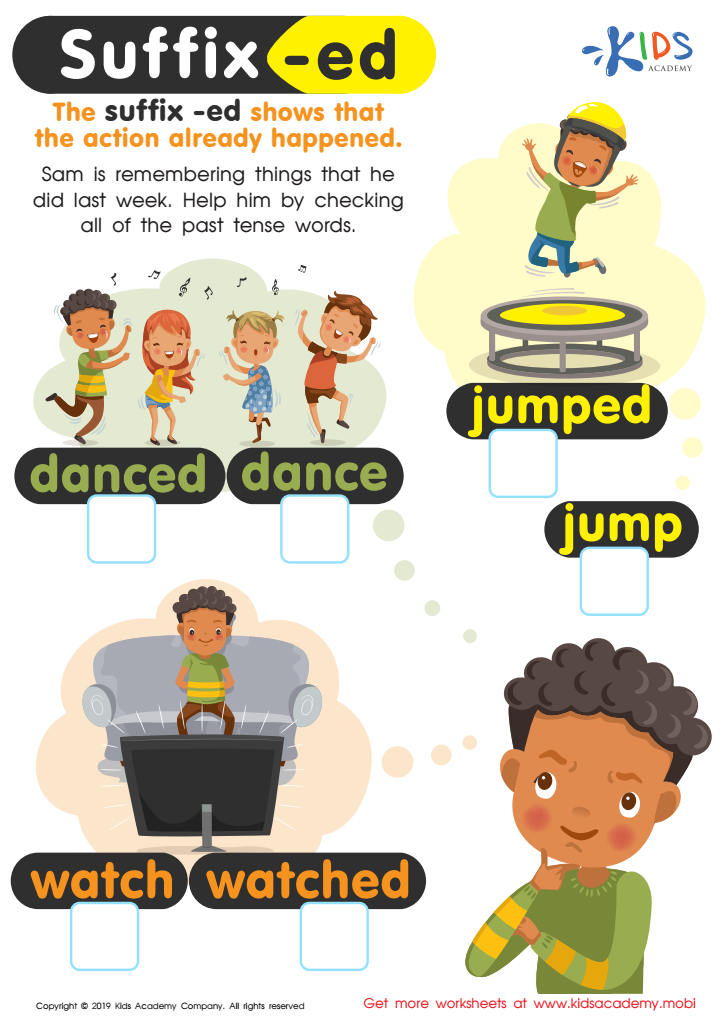

Suffix-ed Worksheet
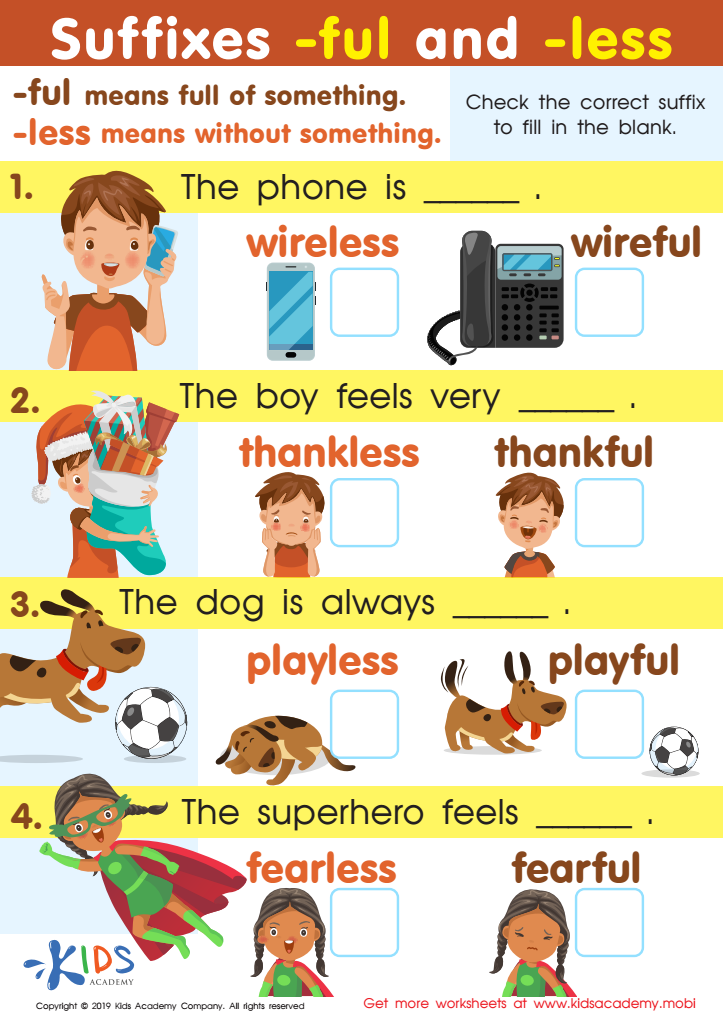

Suffixes –ful and –less Worksheet
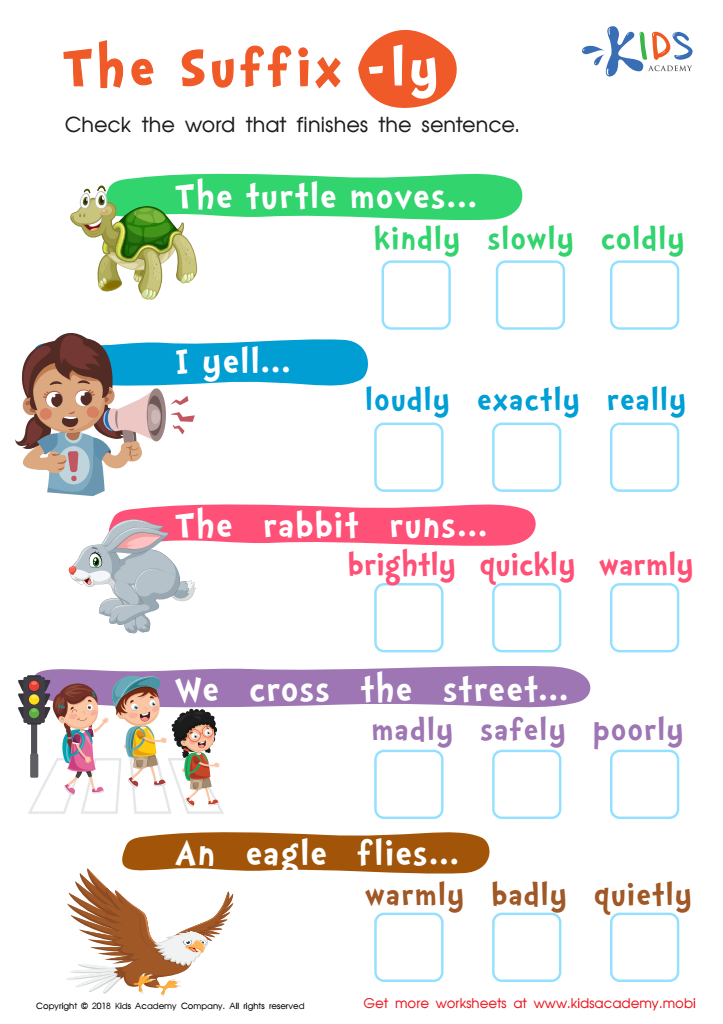

The Suffix -Ly Worksheet
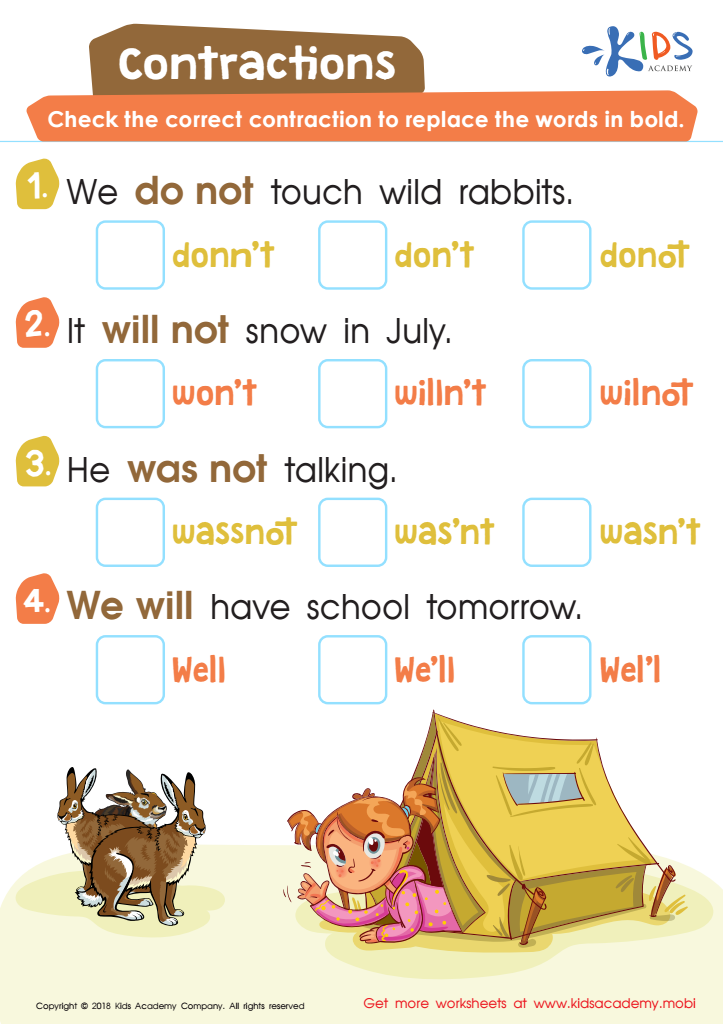

Contractions Worksheet
Improving spelling skills in children ages 6-9 is pivotal for both parents and teachers. During these formative years, young learners are building the foundation for literacy that will support their future education. Mastering spelling enhances their ability to read and write fluently, which in turn influences their overall academic performance.
Spelling accuracy bolsters a child’s confidence. When they spell words correctly, they feel a sense of accomplishment and are more likely to engage in writing activities. This positivity can encourage a lifelong love for reading and writing.
Moreover, proficient spelling aids in effective communication. If children can spell words correctly, they are more likely to be understood clearly by others, reducing miscommunications. It also opens up a wider vocabulary for them as they can confidently use new words without fear of misspelling.
Teachers and parents should also understand that improved spelling skills indicate better understanding of phonetics, word patterns, and language rules. These cognitive benefits extend beyond just English class, aiding in subjects like Social Studies and Science where reading and writing are fundamental.
In sum, focusing on spelling skills ensures that children develop essential communication capabilities, boosting their academic success and self-esteem, while laying the groundwork for future educational pursuits.
 Assign to My Students
Assign to My Students




















